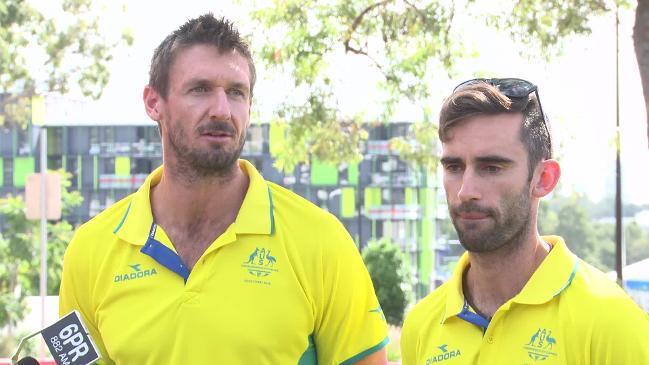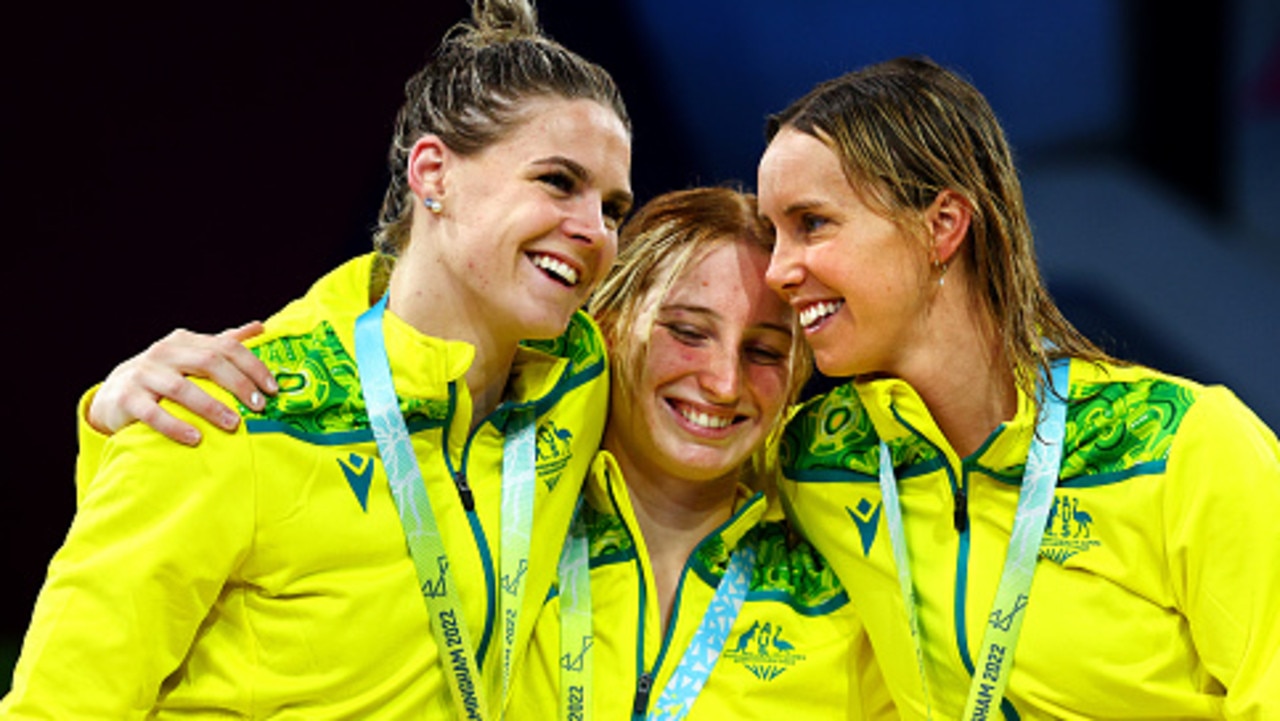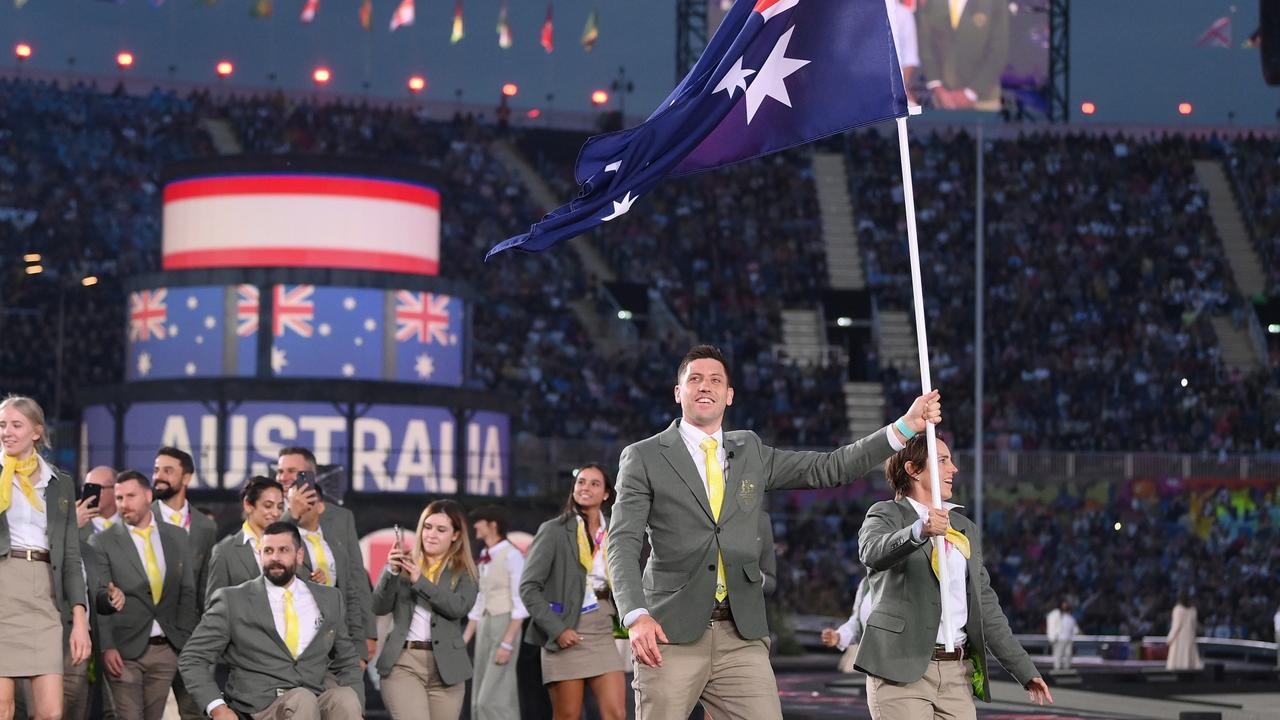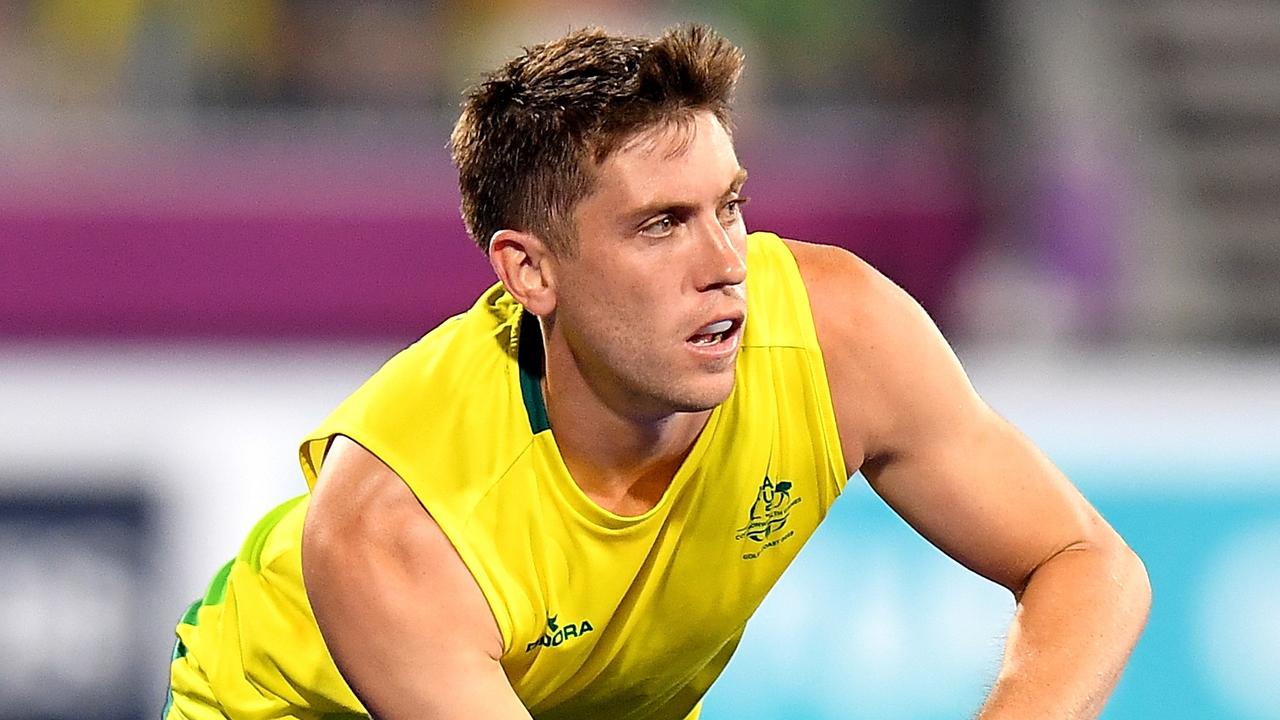Three Aussie athletes were banned from competing on the Gold Coast after being caught doping
AN athletics star and two powerlifters are in the gun after ASADA confirmed three Australians returned positive tests.

ASADA chief executive David Sharpe has confirmed three Australian Commonwealth Games athletes were banned from competition over positive doping tests.
Sharpe said on Thursday three Aussies were banned from competition before their qualification for Gold Coast 2018 was confirmed as a result of a widespread pre-event testing campaign conducted on an international scale.
Commonwealth Games Federation medical commission boss Dr Mani Jegathesan said the three banned Australians featured in a group of “less than 20” athletes from around the Commonwealth to be banned before the event started as a result of positive doping tests.
Sharpe said on Thursday the three Aussies banned in the lead-up to the Games were caught out by tests which followed intelligence reports.
“It has allowed three clean athletes the opportunity to compete in the Games. It has taken away a cheat’s chance,” Sharpe said.
He said the anti-doping agency was not in a position to release the names of the Australian athletes banned.
However, ASADA last month revealed daughter of Aussie track star and hockey great Nova Peris, Jessica Peris, tested positive to a banned substance.
ASADA said in a press release Peris tested positive to three banned metabolites when ASADA conducted an out of competition test in October 2017.

The test forced Peris out of the Australian Commonwealth Games trials and ultimately cost her a spot in the Australian team at the Gold Coast Games.
ASADA has also previously announced powerlifters Sieraya O’Driscoll (four years) and Brendan Hunt (two years) had also received long-term bans from Powerlifting Australia.
When asked if the three athletes banned under the program are Peris, O’Driscoll and Hunt, Sharpe said is not allowed to reveal the athletes’ identities under the ASADA act.
Sharpe said 2600 Australians and 500 international athletes had been tested in the lead-up to the Games, on the back of funding from the Australian Government.
Sharpe said 371 tests were conducted on the back of intelligence reports in the three months preceding the Games.
Sharpe revealed there had been no positive tests so far at the Gold Coast Games.
Dr Jagesthan said athletes have been monitored for up to 12 months before the start of the Games and said intelligence reports, including tip-offs, had formed a key part of the pre-event anti-doping program.

“What used to be in the beginning simply a numbers game is no more, now we try to make every test count,” he said.
“In the Games time period itself we work out an appropriate mix of tests.”
Gold Coast 2018 Corporation chief executive Mark Peters said it can be argued the pre-testing leading into the Games could be considered one of the largest-scale anti-doping initiatives ever seen.
“Some could argue this is the biggest ant-doping program in the history of not just our Games, but others,” he said.
Commonwealth Games Federation chief executive David Grevemberg said the Gold Coast Games is the first time a Commonwealth Games has had a grand scale international anti-doping partnership.
He also said it is the new standard for future Games.
“This is the first time there has been such a comprehensive approach from well beyond the Games themselves and will obviously take us well into the future,” Grevemberg said.




